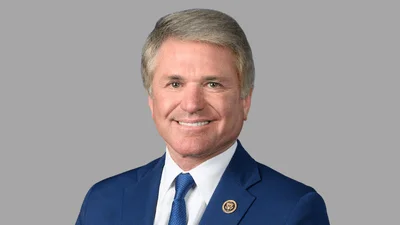Mr. Chairman, thank you for calling the hearing on this topic. We are here today to discuss the estate tax, which for all the recent histrionics around the topic, has been, in one form or another, a part of the tax code since the days of our founding fathers. Whether used by John Adams to defend our democracy against a foreign threat, or by Lincoln to unite it, an inheritance tax has been recognized as a legitimate way to fund government operations and prevent concentrations of wealth.
While an estate or inheritance tax is necessary to fund the government, perhaps more importantly, the estate tax is necessary to our democracy. As our founding fathers observed, you simply cannot have democracy in a nation with extreme economic inequality and wealth concentrated in the hands of the very few.
It was Thomas Jefferson, citing Adam Smith that said:
A power to dispose of estates forever is manifestly absurd. The earth and the fullness of it belongs to every generation, and the preceding one can have no right to bind it up from posterity. Such extension of property is quite unnatural. There is no point more difficult to account for than the right we conceive men to have to dispose of their goods after death.
This sentiment has been adopted in various forms throughout our history by many different Americans. One might remember that it was Theodore Roosevelt, who was the first president to recommend a steep graduated tax on inheritances. More recently, Warren Buffet, George Soros, and Bill Gates have all come out in strong support of maintaining a robust estate tax to prevent the concentration of wealth.
Today’s hearing is an important one in the ongoing debate about the necessity of the estate tax. Today’s panelists represent wide ranging views on the topic, and each should have their views heard. Some of the small businesses, farms and farmers represented here have legitimate concerns about being able to make ends meet. As I understand it, many farmers and small businesses find themselves asset rich, but cash poor. Combines, tractors and plows are not cheap and are big investments that farmers rely on to grow their businesses.
Congress has recognized the plight of these businesses and enacted numerous provisions to help our nation’s farmers and small businesses, whether through generous expensing rules or accelerated and bonus depreciation - both of which I have supported. This is in addition to raising the thresholds on the estate and gift tax. We have gone from a $1 million dollar exemption with a top rate of 55 percent to a $5 million dollar exemption - indexed for inflation - with a top rate of 40 percent. While our nation’s farmers and small businesses have legitimate concerns about the estate tax, it is my hope that they are not being used to end the estate tax for our nation’s wealthiest.
The facts seemingly bear this out, as the Tax Policy Center recently revealed that only 20 small business and farm estates nationwide owed any estate tax in 2013. Furthermore, TPC estimate those 20 estates owed just 4.9 percent of their value in tax, on average.
This trend at the small business and farmer level also corresponds for all taxpayers as well. As JCT points out, in 2013, there were 2.6 million deaths in the United States, and 4,700 estate tax returns reporting some tax liability were filed. This means 99.85 percent of all estates owe no estate tax at all. By comparison in the mid-1970s, taxable estate tax returns exceeded six percent of all deaths.
Mr. Chairman, I again would like to thank you for calling this hearing today. I look forward to the discussion and to hearing from our witnesses on ways to improve the current estate tax. The estate tax was always intellectually designed not to reward Paris Hilton for her grandfather’s hard work.









